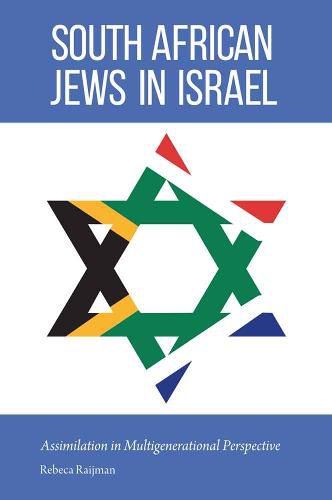Readings Newsletter
Become a Readings Member to make your shopping experience even easier.
Sign in or sign up for free!
You’re not far away from qualifying for FREE standard shipping within Australia
You’ve qualified for FREE standard shipping within Australia
The cart is loading…






Despite consensus about the importance of multigenerational analysis for studying the long-term impact of immigration, most studies in Israel have focused on the integration of first-generation migrants, neglecting key changes (in economic, social, linguistic, and identity outcomes) that occur intergenerationally. Rebeca Raijman tackles this important but untold story with respect to Jewish South African immigration in Israel. By collecting data from three generational cohorts, Raijman analyzes assimilation from a comparative multigenerational perspective. She also combines both quantitative and qualitative evidence with in-depth interviews and participant observation, thereby providing a rich and more complete picture of the complex process of migrant assimilation.
While the migrant subpopulation of South Africa has not received the attention that immigrant populations from the former Soviet Union and Ethiopia have, as English-speaking migrants they are a powerful and significant group. Given the status of English as an international language, this study has important implications for understanding the expected assimilation trajectories of Anglophone immigrants in Israel as well as in other non-English-speaking societies. South African Jews in Israel not only contributes empirical material concerning immigrants in Israeli society but also articulates a theoretical understanding of the social mechanisms underlying the integration of various generations of immigrants into a variety of societal domains.
$9.00 standard shipping within Australia
FREE standard shipping within Australia for orders over $100.00
Express & International shipping calculated at checkout
Despite consensus about the importance of multigenerational analysis for studying the long-term impact of immigration, most studies in Israel have focused on the integration of first-generation migrants, neglecting key changes (in economic, social, linguistic, and identity outcomes) that occur intergenerationally. Rebeca Raijman tackles this important but untold story with respect to Jewish South African immigration in Israel. By collecting data from three generational cohorts, Raijman analyzes assimilation from a comparative multigenerational perspective. She also combines both quantitative and qualitative evidence with in-depth interviews and participant observation, thereby providing a rich and more complete picture of the complex process of migrant assimilation.
While the migrant subpopulation of South Africa has not received the attention that immigrant populations from the former Soviet Union and Ethiopia have, as English-speaking migrants they are a powerful and significant group. Given the status of English as an international language, this study has important implications for understanding the expected assimilation trajectories of Anglophone immigrants in Israel as well as in other non-English-speaking societies. South African Jews in Israel not only contributes empirical material concerning immigrants in Israeli society but also articulates a theoretical understanding of the social mechanisms underlying the integration of various generations of immigrants into a variety of societal domains.